These 10 Foods Are Healthier OUTSIDE the Fridge – Here’s Why
Mohd Naushad | Feb 07, 2025, 14:37 IST
( Image credit : Timeslife )
Refrigerating common foods like tomatoes, potatoes, onions, and olive oil can degrade their flavour, texture, and nutritional value. Cold storage can interfere with their ripening process, diminish beneficial antioxidants, and promote bacterial growth, posing potential health risks. Foods like avocados, bananas, and cucumbers lose vital nutrients such as vitamins and healthy fats when stored in the fridge. To preserve both taste and health benefits, these foods should be kept at room temperature or in a cool, dry place. Proper storage ensures optimal quality and nutrition.
When food storage comes to one's mind, refrigeration is usually the first that is thought of. We almost tend to put anything in the fridge, hoping that cold will preserve freshness and extend shelf life. However, that method of storing is not always beneficial for certain foods. In fact, in some cases, refrigerating some items can ruin the very taste, texture, or nutritional value of the product. Here are a few of the popular foods that ought to be kept out of the fridge.
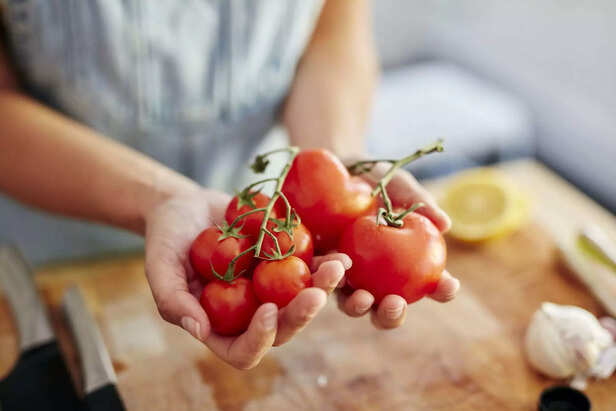
Refrigeration can greatly affect the flavor of tomatoes while also allowing them to become mushy. Cold temperatures will interrupt the natural ripening, with the end effect being a lesser taste and nutritive value for the tomato. Also, vitamin C, which is abundant in tomatoes, would not be as effective when stored in the fridge. If the flavor is lost, so will the enjoyment, and less enjoyment may mean fewer potential beneficial antioxidants taken in, thereby affecting human health.
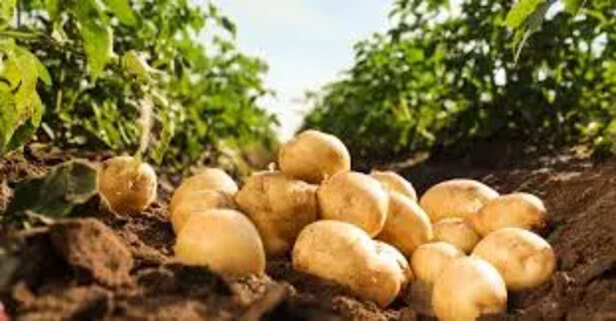
Keeping potatoes in the refrigerator can increase acrylamide concentration, a possibly toxic chemical compound generated during the high-temperature preparation of starchy food. Cold temperatures convert starch into sugar, thus altering the taste and texture of potatoes to become comestibly sweeter and sometimes grittily. Consumption of potatoes kept in the fridge could contribute to more acrylamide ingestion, which is suggested to carry cancer risk when excessively consumed over time. Potatoes should best be stored in a cool, dry place to help maintain flavor and health.
image
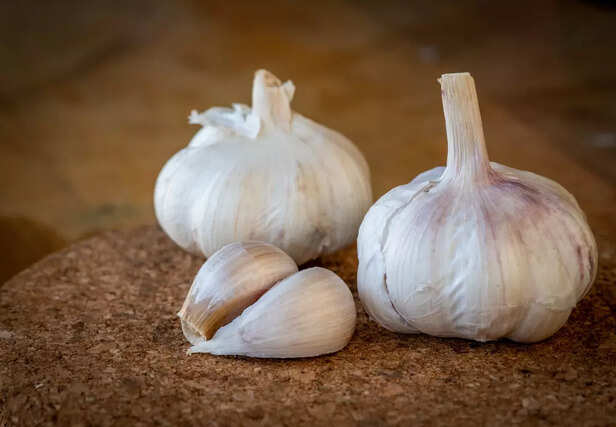
A bitter taste at some point in time is one of the effects of sprouting when garlic is being kept in the fridge. Cold and moist conditions may encourage the growth of molds and this exposure creates the risk of potential mycotoxins, harmful chemicals possibly causing allergic reactions and food poisonings in severe cases. Garlic might offer better health benefits, such as anti-inflammation and cardiac health, when stored in dry cool conditions, say a pantry or countertop, as against a moist condition where it can possibly get mouldy.
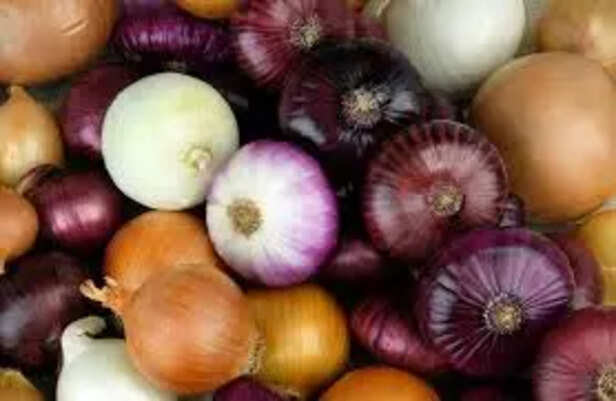
Onions leave large concerns about mushiness and spoilage because of moisture inside the refrigerator, giving room for bacteria to grow and harm the incidence of foodborne diseases, for instance, food poisoning. This helps diminish their flavor and texture while also impairing their health benefits in terms of profile, such as antioxidant activity. Thus, for the taste and health of the onion, a cool, dry place with good aeration but away from refrigerators is good for maintaining their freshness and health benefits.

Refrigerating bread hastens staling, rendering it dry and hard for the digestive system with carbohydrate breakdown. It has also been said that the cold interferes with the vitamins and minerals of bread, posing a downside to its nutritional value. Eating stale bread often can cause discomfort in the digestive system, while consumption of past-dated bread might present a serious risk of foodborne illness due to the presence of bacteria or mold. Therefore, bread should be stored at room temperature or frozen for longer-lasting preservation.
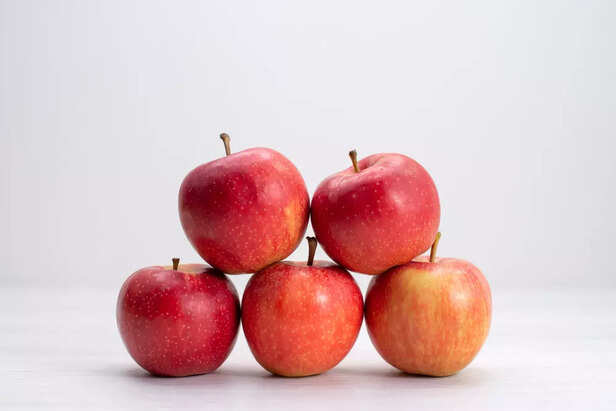
When they are refrigerated, apples tend to lose their crispness and flavor. At cooler temperatures, apples are unable to produce antioxidants that are necessary for heart health and immune function. Cold temperatures inhibit the abilities of apples to combat oxidative stress, which is a major proponent in chronic disease formation. For this reason, keeping apples at room temperature ensures that their nutritional value and taste are maintained. Refrigerate only when absolutely necessary, as longer cold-storing will inhibit the loss of key nutrients and enable you to derive complete health benefits from the fruit.
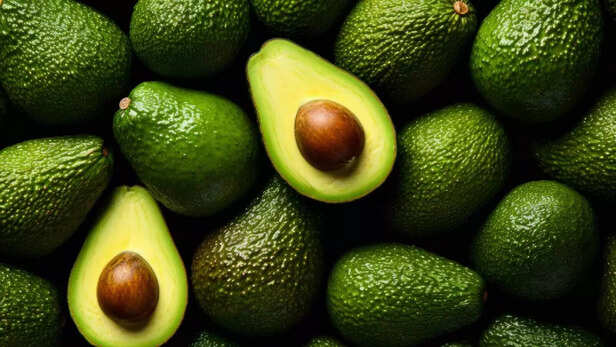
Avocados in the refrigerator before ripening tend to hold up their ripening longer and make it harder to get the best from the fruit. Cold storage can also lessen the quantity of the healthy fats and antioxidants stomaching protection against chronic diseases, cardio health, and inflammation. Storing ripe avocados in the fridge is a surefire way to turn them mushy and therefore deprive them of some nutrients. On top of that, cold temperatures have a tendency to accelerate the growth of bad bacteria that can lead to food poisoning. For maximum taste and health benefits, keep avocados at room temperature until ripe.

Bananas must be left out if a member of the family wishes to eat them fresh. Refrigeration is a method that causes the skin to blacken, whereas the fruit remains imminently edible; it stops their ripening and hence interferes with gaining those vital heart-health-and-muscle-function nutrients-potassium and vitamin C. The taste of the banana is also reduced in appeal by cold storage. Furthermore, refrigeration breaks down some sugars naturally occurring in the fruit, thereby means the fruit loses some of its energy value. Bananas are best stored at room temperature in order to retain most of their nutritional properties and flavor for health-offs and enjoying-wholesome sweetness from ripening.

Cucumbers stored in the fridge succumb to wilting, losing much-needed hydration for skin and digestive health. Cold temperatures compromise beneficial vitamin and mineral contents and offer cucumbers no deserved nutrition. While it is in the refrigerator, cucumbers can develop pathogenic bacteria such as Salmonella or E. coli and can become a food safety problem. The antioxidant capacity of cucumbers needed to counteract inflammation and chronic disease is also likely to diminish with time. So keep cucumbers healthy and fresh by storing them at room temperature.
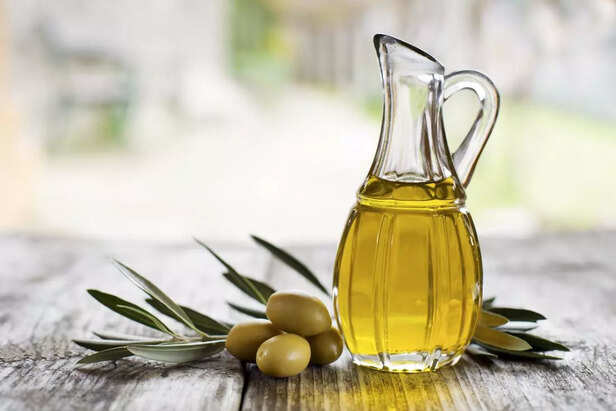
Refrigeration would make the olive oil turn solid and murky, thus destroying its flavor and diminishing the power of its antioxidants. Depending on the PUFAs, cold temperatures also render even less effective omega-3s, a healthy fat that benefits heart health and inflammation. Storage in a refrigerator could translate directly into losing its advantageous properties, with potential reduction in cholesterol-lowering activity and overall health impact. Now, refrigerating olive oil raises the possibility of mold or bacterial growth if stored improperly. For optimal health advantages, store olive oil in a dark, cool cabinet at room temperature.
Some foods will lose flavor, texture, and nutrients when refrigerated. Cold temperatures can deplete essential vitamins, antioxidants, and healthy fats while, in some cases, allowing the growth of pathogenic bacteria, putting your health at risk. For gourmet and healthy considerations, you need to store foods like tomatoes, potatoes, bread, and olive oil in ways that allow them to be at room temperature or in a cool dry place. Keeping food according to these guidelines will help retain its quality and your health.
1. Tomatoes

Tomatoes
( Image credit : Timeslife )
Refrigeration can greatly affect the flavor of tomatoes while also allowing them to become mushy. Cold temperatures will interrupt the natural ripening, with the end effect being a lesser taste and nutritive value for the tomato. Also, vitamin C, which is abundant in tomatoes, would not be as effective when stored in the fridge. If the flavor is lost, so will the enjoyment, and less enjoyment may mean fewer potential beneficial antioxidants taken in, thereby affecting human health.
2. Potatoes

Potatoes
( Image credit : Timeslife )
Keeping potatoes in the refrigerator can increase acrylamide concentration, a possibly toxic chemical compound generated during the high-temperature preparation of starchy food. Cold temperatures convert starch into sugar, thus altering the taste and texture of potatoes to become comestibly sweeter and sometimes grittily. Consumption of potatoes kept in the fridge could contribute to more acrylamide ingestion, which is suggested to carry cancer risk when excessively consumed over time. Potatoes should best be stored in a cool, dry place to help maintain flavor and health.
3. Garlic

Garlic
( Image credit : Timeslife )
A bitter taste at some point in time is one of the effects of sprouting when garlic is being kept in the fridge. Cold and moist conditions may encourage the growth of molds and this exposure creates the risk of potential mycotoxins, harmful chemicals possibly causing allergic reactions and food poisonings in severe cases. Garlic might offer better health benefits, such as anti-inflammation and cardiac health, when stored in dry cool conditions, say a pantry or countertop, as against a moist condition where it can possibly get mouldy.
4. Onions

Onions
( Image credit : Timeslife )
Onions leave large concerns about mushiness and spoilage because of moisture inside the refrigerator, giving room for bacteria to grow and harm the incidence of foodborne diseases, for instance, food poisoning. This helps diminish their flavor and texture while also impairing their health benefits in terms of profile, such as antioxidant activity. Thus, for the taste and health of the onion, a cool, dry place with good aeration but away from refrigerators is good for maintaining their freshness and health benefits.
5. Bread

Bread
( Image credit : Timeslife )
Refrigerating bread hastens staling, rendering it dry and hard for the digestive system with carbohydrate breakdown. It has also been said that the cold interferes with the vitamins and minerals of bread, posing a downside to its nutritional value. Eating stale bread often can cause discomfort in the digestive system, while consumption of past-dated bread might present a serious risk of foodborne illness due to the presence of bacteria or mold. Therefore, bread should be stored at room temperature or frozen for longer-lasting preservation.
6. Apples

Apples
( Image credit : Timeslife )
When they are refrigerated, apples tend to lose their crispness and flavor. At cooler temperatures, apples are unable to produce antioxidants that are necessary for heart health and immune function. Cold temperatures inhibit the abilities of apples to combat oxidative stress, which is a major proponent in chronic disease formation. For this reason, keeping apples at room temperature ensures that their nutritional value and taste are maintained. Refrigerate only when absolutely necessary, as longer cold-storing will inhibit the loss of key nutrients and enable you to derive complete health benefits from the fruit.
7. Avocados

Avocado
( Image credit : Timeslife )
Avocados in the refrigerator before ripening tend to hold up their ripening longer and make it harder to get the best from the fruit. Cold storage can also lessen the quantity of the healthy fats and antioxidants stomaching protection against chronic diseases, cardio health, and inflammation. Storing ripe avocados in the fridge is a surefire way to turn them mushy and therefore deprive them of some nutrients. On top of that, cold temperatures have a tendency to accelerate the growth of bad bacteria that can lead to food poisoning. For maximum taste and health benefits, keep avocados at room temperature until ripe.
8. Bananas

Banana
( Image credit : Timeslife )
Bananas must be left out if a member of the family wishes to eat them fresh. Refrigeration is a method that causes the skin to blacken, whereas the fruit remains imminently edible; it stops their ripening and hence interferes with gaining those vital heart-health-and-muscle-function nutrients-potassium and vitamin C. The taste of the banana is also reduced in appeal by cold storage. Furthermore, refrigeration breaks down some sugars naturally occurring in the fruit, thereby means the fruit loses some of its energy value. Bananas are best stored at room temperature in order to retain most of their nutritional properties and flavor for health-offs and enjoying-wholesome sweetness from ripening.
9. Cucumbers

Cucumber
( Image credit : Timeslife )
Cucumbers stored in the fridge succumb to wilting, losing much-needed hydration for skin and digestive health. Cold temperatures compromise beneficial vitamin and mineral contents and offer cucumbers no deserved nutrition. While it is in the refrigerator, cucumbers can develop pathogenic bacteria such as Salmonella or E. coli and can become a food safety problem. The antioxidant capacity of cucumbers needed to counteract inflammation and chronic disease is also likely to diminish with time. So keep cucumbers healthy and fresh by storing them at room temperature.
10. Olive Oil

Olive oil
( Image credit : Timeslife )
Refrigeration would make the olive oil turn solid and murky, thus destroying its flavor and diminishing the power of its antioxidants. Depending on the PUFAs, cold temperatures also render even less effective omega-3s, a healthy fat that benefits heart health and inflammation. Storage in a refrigerator could translate directly into losing its advantageous properties, with potential reduction in cholesterol-lowering activity and overall health impact. Now, refrigerating olive oil raises the possibility of mold or bacterial growth if stored improperly. For optimal health advantages, store olive oil in a dark, cool cabinet at room temperature.
Some foods will lose flavor, texture, and nutrients when refrigerated. Cold temperatures can deplete essential vitamins, antioxidants, and healthy fats while, in some cases, allowing the growth of pathogenic bacteria, putting your health at risk. For gourmet and healthy considerations, you need to store foods like tomatoes, potatoes, bread, and olive oil in ways that allow them to be at room temperature or in a cool dry place. Keeping food according to these guidelines will help retain its quality and your health.
